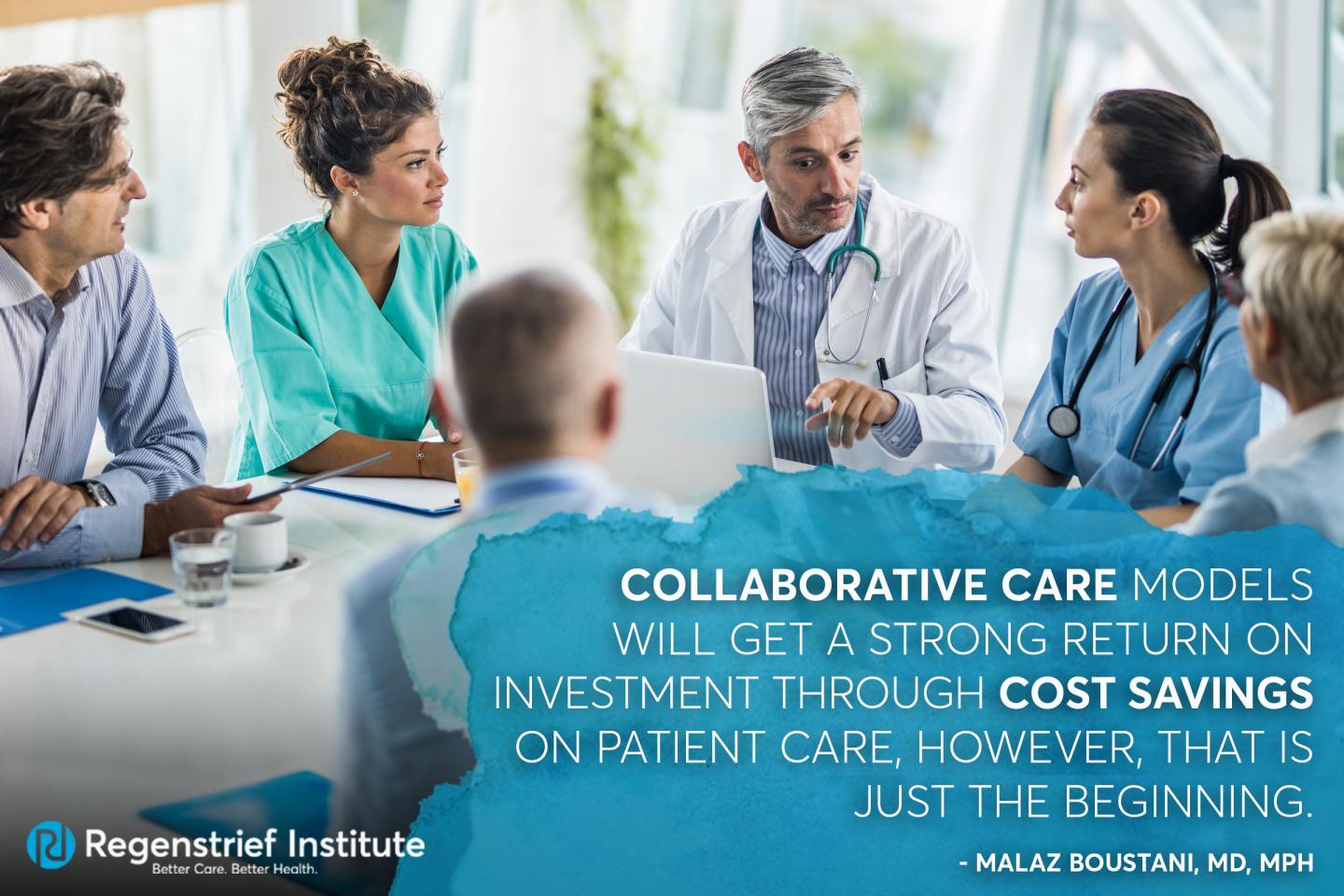
Credit: Regenstrief Institute
A Regenstrief scientist is calling on the Centers for Medicare and Medicaid Services (CMS) to create access to better care for the 20 million Americans affected by Alzheimer’s disease and related dementias – both patients and their caregivers.
The proposed reimbursement changes, outlined in the newest issue of Health Affairs, greatly expand the scope of services offered to patients and even provide residual benefit to caregivers. Through these changes, quality of life for patients could be improved, relocations to nursing homes can be delayed, and caregivers’ stress can be significantly reduced.
“Collaborative care models will get a strong return on investment to CMS through cost savings on patient care, however, that is just the beginning,” says Malaz Boustani, M.D., MPH, a Regenstrief Institute research scientist and lead author of the Health Affairs paper. “We’re not just reducing expenditures on CMS’ current patients, we’re also providing a future return on investment. These unpaid caregivers are later being introduced into the system at a health deficit. Those caregivers could enter the Medicare system as healthier patients with lower stress.”
Dr. Boustani is also director of the Center for Health Innovation and Implementation Science, a collaboration among the Indiana University School of Medicine, Indiana Clinical and Translational Sciences Institute and Regenstrief. He is the Richard M. Fairbanks Professor of Aging Research at the IU School of Medicine and a clinician at the Sandra Eskenazi Center for Brain Care Innovation.
Studies have shown collaborative care models, which use a multidisciplinary team of specialists to manage and coordinate holistic care for people with Alzheimer’s disease and related dementias, to be among the most effective methods of care, providing better outcomes for patients and reducing costs to healthcare systems by thousands of dollars per patient, per year. However, Medicare currently does not reimburse for the wide range of evidence-based services that are offered as part of collaborative care.
Examples of effective models exist. Dr. Boustani and colleagues developed and have tested for nearly a decade, a dementia care model – the Aging Brain Care (ABC) model – which includes care coordination for diseases like depression and heart failure that often co-occur with dementia, offers families a highly qualified team of diverse experts to provide wraparound services and coordinate care, and activates services for caregivers that could help reduce stress and avoid burnout.
“Collaborative care models lead to better health and better lives for patients and caregivers as well as lower expenses for hospitals and Medicare,” says Dr. Boustani. “If we get their family member eligible for care, they too will benefit, and it will help them enter the Medicare system in better health.”
In the new payment model being advocated, existing patients experiencing moderate to severe dementia, or patients with mild dementia whose caregivers present high levels of stress, would be eligible to receive coordinated services such as medication management, dementia care, care navigation support, and complementary support for diseases that commonly co-occur with Alzheimer’s and related dementias. In addition, unpaid caregivers would receive access to mental health services and support groups. Reimbursement to providers for these services would all be tied to performance-based metrics.
“An Alternative Payment Model to Support Widespread Use of Collaborative Dementia Care Models” appears in Health Affairs Vol. 38, Issue 1, and was written by Dr. Malaz Boustani, the Richard M. Fairbanks Professor of Aging Research at Indiana University School of Medicine, director of the Center for Health Innovation and Implementation Science at the Indiana Clinical and Translational Sciences Institute, the IU School of Medicine and the Regenstrief Institute Inc., and the Chief Innovation and Implementation Officer at the Sandra Eskenazi Center for Brain Care Innovation at Eskenazi Health; Catherine Alder of Eskenazi Health; Craig A. Solid of Solid Research Group, LLC; and David Reuben of the David Geffen School of Medicine at the University of California Los Angeles.
###
Media Contact
John Erickson
[email protected]
317-274-9062




